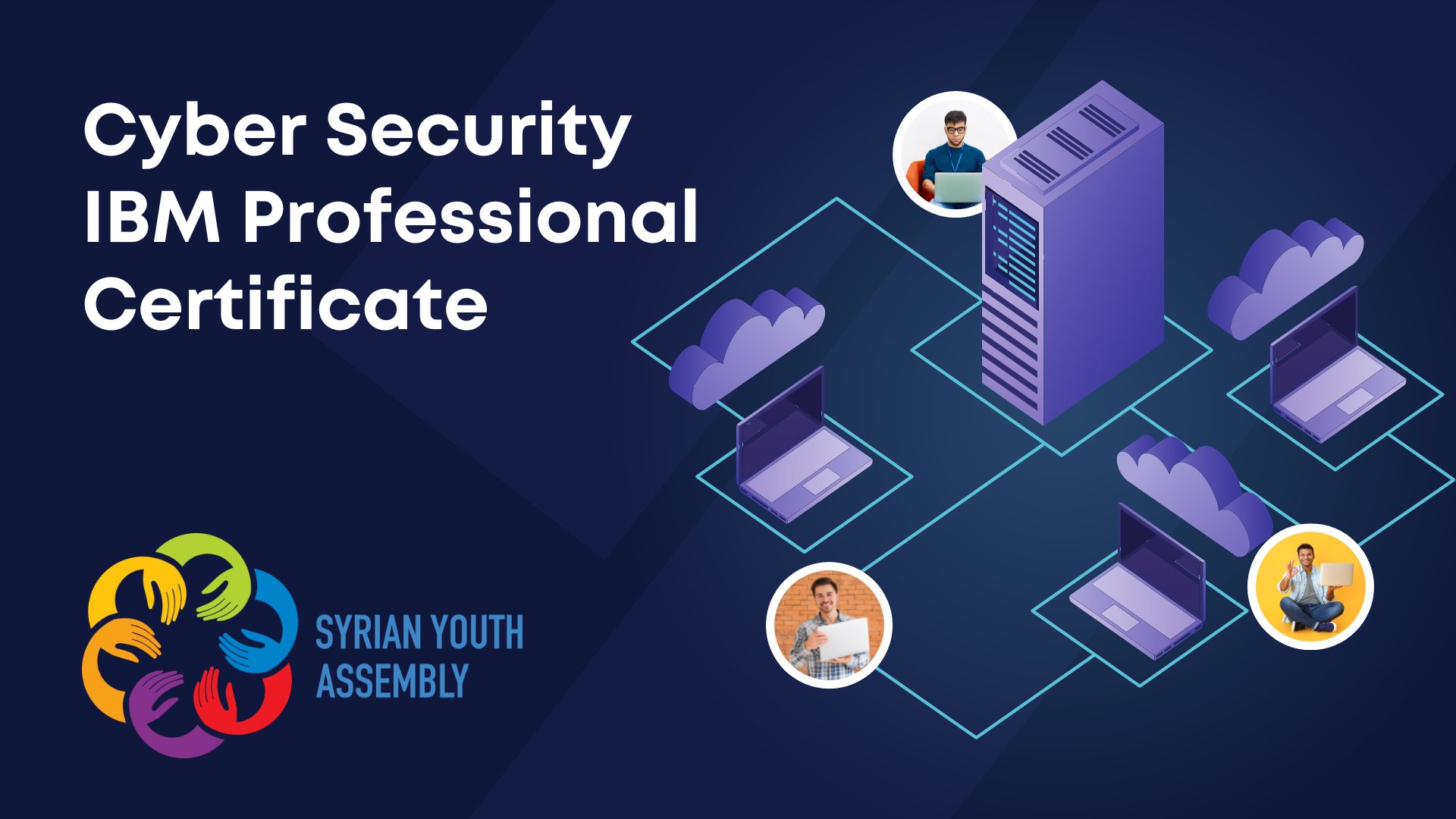
Cyber Security IBM Professional certificate
A growing number of exciting, well-paying jobs in today’s security industry do not require a college degree. This 8-course Professional Certificate will give you the technical skills to become job-ready for a Cybersecurity Analyst role. Instructional content and labs will introduce you to concepts including network security, endpoint protection, incident response, threat intelligence, penetration testing, and vulnerability assessment.
This program is suitable for learners entering the workforce and professionals switching careers. You should be comfortable working with computers, be willing to develop new technical skills, and enjoy collaborative problem solving and communicating solutions.
If you are a refugee or internally displaced, you can apply for Coursera scholarship for Syrian through the Syrian Youth Assembly Here.
This path contains eight courses, and the last one is a capstone project:
- Introduction to Cybersecurity Tools & Cyber Attacks:
This course gives you the background needed to understand basic Cybersecurity. You will learn the history of Cybersecurity, types and motives of cyber-attacks to further your knowledge of current threats to organizations and individuals. Key terminology, basic system concepts and tools will be examined as an introduction to the Cybersecurity field. You will learn about critical thinking and its importance to anyone looking to pursue a career in Cybersecurity.
- Cybersecurity Roles, Processes & Operating System Security:
This course is intended for anyone who wants to gain a basic understanding of Cybersecurity or as the second course in a series of courses to acquire the skills to work in the Cybersecurity field as a Jr Cybersecurity Analyst.
- Cybersecurity Compliance Framework & System Administration:
This course gives you the background needed to understand the key cybersecurity compliance and industry standards. This knowledge will be important for you to learn no matter what cybersecurity role you would like to acquire or have within an organization. You will learn the basic commands for user and server administration as it relates to security. You will need this skill to be able to understand vulnerabilities within your organizations operating systems.
- Network Security & Database Vulnerabilities:
This course gives you the background needed to understand basic network security. You will learn the about Local Area Networks, TCP/IP, the OSI Framework and routing basics. You will learn how networking affects security systems within an organization. You will learn the network components that guard an organization from cybersecurity attacks. In addition to networking, you will learn about database vulnerabilities and the tools/knowledge needed to research a database vulnerability for a variety of databases including SQL Injection, Oracle, Mongo and Couch.
- Penetration Testing, Incident Response and Forensics:
You will learn about the different phases of penetration testing, how to gather data for your penetration test and popular penetration testing tools. Furthermore, you will learn the phases of an incident response, important documentation to collect, and the components of an incident response policy and team. Finally, you will learn key steps in the forensic process and important data to collect.
- Cyber Threat Intelligence:
You will understand network defensive tactics, define network access control and use network monitoring tools. You will understand data protection risks and explore mobile endpoint protection. Finally, you will recognize various scanning technologies, application security vulnerabilities and threat intelligence platforms. This course also gives your hands on access to cybersecurity tools important to a system analyst.
- Cybersecurity Capstone: Breach Response Case Studies:
You will explore incident response methodologies and security models. You will learn to recognize and categorize key types of vulnerabilities and associated attacks against today’s organizations. You will explore in depth several past and recent breaches to learn how they were detected and what was done or could have been done to reduce the threat risk to the organization.
- IBM Cybersecurity Analyst Assessment:
A growing number of exciting, well-paying jobs in today’s security industry do not require a college degree. This is the final course required to assess your acquired knowledge and skills from the previous two specializations, IT Fundamentals of Cybersecurity and Security Analyst Fundamentals, to become job-ready for a cybersecurity analyst role.
